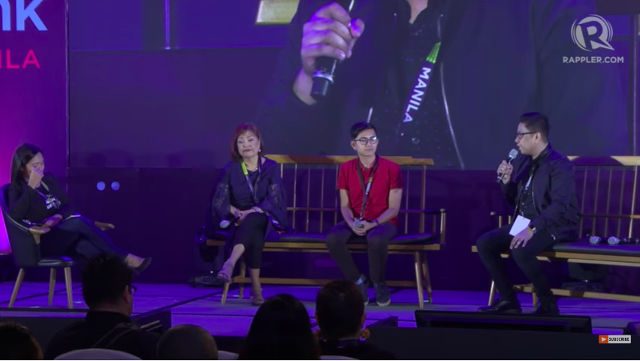
Blogging and content creation as a practice is markedly different now compared to its early days.
During a panel discussion at Social Media Week 2018 on Friday, November 16, host Ace Gapuz talked with bloggers Noemi Lardizabal Dado, Kenneth Surat, and Mark Macanas about the changing landscape of blogging and content generation.
Their discussion touched on the differences between blogging before and after the rise of social media, the advent of monetization, and words of advice for aspiring content creators.
The early days vs now
Back in the early days of Angelfire and LiveJournal, blogging was a new thing requiring some knowledge of coding to personalize your online home.
Dado and Surat agreed that it was more complicated in the early days, as you had to learn to use cascading style sheets (CSS) to tweak the look of your blog.
Blogs also appealed more to personal interest, with people opting to make blogs to write about their interests, such as fashion or technology. Commenters would reply directly on the blogs themselves.
Macanas explained social media was something in the periphery of usage back in the day, but as it grew more popular, it also became more entrenched within the processes of blogging.
Slowly, social media use became its own form of content generation – short-form content in this case as opposed to long-form writing on blogs – that some might say rivals professional blogging now.
While blogging is still popular, it sometimes occurs that more people reply to posts they read on social media than on the blog post itself.
Monetization
While there are now many ways for bloggers and content makers to both make a mark and make money off of their activities, it wasn't always this easy.
Bloggers began by using advertising to support their blog, using things like Google's AdSense.
Both Dado and Macanas noted Globe as being one of the first brands to support and push for bloggers to attend sponsored events.
Eventually, blog advertising community Nuffnang made it popular for established bloggers to earn money from blogging professionally till content creation sponsorships and partnerships of that sort became more mainstream.
Blogging and content creation, as a result of its popularity, also brought about a saturation of the field.
This saturation, while bringing down the expected returns for individuals looking to make money off blogging, also created more ways for established or otherwise creative content makers to diversify the means by which they earn money.
Aside from sponsored presentations of products and events coverage, there's also affiliate marketing, where businesses reward content creators who get people to buy products using that content creator's specific referral link.
Advice
Of course, blogging and content creation isn't all about money.
The panelists emphasized that focusing on making money through content creation as a primary impetus for starting one up is likely to kill your momentum.
The process, they said, needs an investment of time and talent to grow, and results are not immediate or assured.
For the troubles with trolling or criticism, Dado emphasized the importance of having rules and moderation to limit abuse. Macanas echoed this by reminding aspiring content creators not to dwell on bashers' commentaries, and to keep criticism in mind as points of improvement if the criticism is warranted.
Ultimately though, everyone who wants to start creating content for others – whether it's blogs or videos, or livestreams – needs to push themselves to get what they want.
The panelists emphasized following your passions, working toward being known for something and letting that stick as your signature, and just getting to work.
Macanas added: "If you are talented, if you are passionate, if you are unique, if you have something fresh to offer, there's a big room for you. All you have to do is start." – Rappler.com